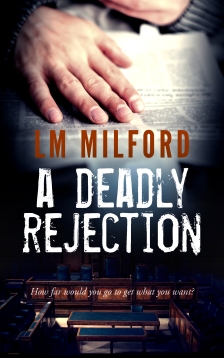This year I’m going to be contributing a post every month to the A Lover of Books blog. Here’s what I wrote in February:
When you’re starting out as a writer, one of the first pieces of advice you’re given is ‘write what you know’. There are several schools of thought on whether this is good advice or not – some say you can write about what you like as long as you’ve done the research.

But I think when you’re first starting out, writing about something you know well means you can concentrate on learning how to write, without having to stop and research every step. That can come later, once you have writing experience.
In a former life, I was a local newspaper reporter for about 8 years. In that time I did some great jobs and some awful jobs. One of the not-quite-so-bad jobs was covering council meetings. I’d been to them all – planning, licensing, governance, for example. These meetings could be fascinating and dull in equal measures. Sometimes you had to dig to get a story from them, but there was always something there if you looked hard enough.
It was during a meeting of the ‘Innovation Panel’ that my brain started to stir.
The meeting had run on for two hours, with very little innovation taking place, when the councillors decided they’d better have a comfort break. My heart sank at the idea of yet more time wasted. Bear in mind that it was now after 8pm and I’d been working since 9am. In addition, I have to file what stories I could glean from the meeting before I could go to bed (to fill any spaces left in the next day’s edition). I had pages and pages of shorthand notes and began to review them to make writing up easier. Near me, as I sat at the desk kept for the press, was a small gaggle of councillors and officers deep in whispered conversation. As I picked up my pen to make a note in the margin by a useful quote, they all stopped talking, stared at me and then, as a group shuffled away to the back of the room.
Immediately my suspicious journalist brain lit up with ‘what were they talking about that they thought I’d overheard?’. It was probably nothing, but for the next few weeks I couldn’t shake that idea from my head, that if something was going on, what would they do to stop me from printing what they thought I’d overheard?
There would have been a lot of ways to do that without going to the extremes of what happens to Dan, the reporter in A Deadly Rejection, but I’ve always been somewhat over-dramatic about this type of thing – a good skills for a crime writer to have, don’t you think?
I can’t recall the moment I sat down to write the book, but it probably began to emerge over the next few weeks. It seems strange to look back now, when the book has been edited and changed so much, and think that without that one moment, that one reaction to a journalist, A Deadly Rejection might not have happened.
The book took over my life for many an evening, weekend, holiday for years but finally I’ve got it onto the virtual bookshelves and readers are enjoying it (most importantly).
I thank those councillors and officers for the inspiration. I promise that none of them is in the finished book, nor is the innovation panel. After all, who would believe that such a thing existed? You couldn’t make it up.
Read more about the creation of A Deadly Rejection at A Lover of Books.